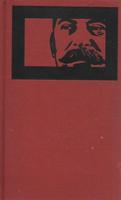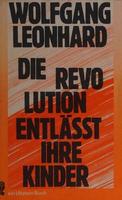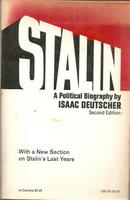Subject

photo credits: Wikimedia Commons
Stalinism is the means of governing and Marxist–Leninist policies implemented in the Soviet Union (USSR) from 1927 to 1953 by Joseph Stalin. It included the creation of a one-party totalitarian police state, rapid industrialization, the theory of socialism in one country (until 1939), collectivization of agriculture, intensification of class conflict, a cult of personality, and subordination of the interests of foreign communist parties to those of the Communist Party of the Soviet Union, which Stalinism deemed the leading vanguard party of communist revolution at the time. After Stalin's death and the Khrushchev Thaw, a period of de-Stalinization began in the 1950s and 1960s, which caused the influence of Stalin's ideology to begin to wane in the USSR. Stalin's regime forcibly purged society of what it saw as threats to itself and its brand of communism (so-called "enemies of the people"), which included political dissidents, non-Soviet nationalists, the bourgeoisie, better-off peasants ("kulaks"), and those of the working class who demonstrated "counter-revolutionary" sympathies. This resulted in mass repression of such people and their families, including mass arrests, show trials, executions, and imprisonment in forced labor camps known as gulags. The most notorious examples were the Great Purge and the Dekulakization campaign. Stalinism was also marked by militant atheism, mass anti-religious persecution, and ethnic cleansing through forced deportations. Some historians, such as Robert Service, have blamed Stalinist policies, particularly collectivization, for causing famines such as the Holodomor. Other historians and scholars disagree on Stalinism's role.Officially designed to accelerate development toward communism, the need for industrialization in the Soviet Union was emphasized because the Soviet Union had previously fallen behind economically compared to Western countries and also because socialist society needed industry to face the challenges posed by internal and external enemies of communism. Rapid industrialization was accompanied by mass collectivization of agriculture and rapid urbanization, which converted many small villages into industrial cities. To accelerate industrialization's development, Stalin imported materials, ideas, expertise, and workers from western Europe and the United States, pragmatically setting up joint-venture contracts with major American private enterprises such as the Ford Motor Company, which, under state supervision, assisted in developing the basis of the industry of the Soviet economy from the late 1920s to the 1930s. After the American private enterprises had completed their tasks, Soviet state enterprises took over. Source: Wikipedia (en)
Works about Stalinism 19
Capital rouge : Un conte soviétique
de AS 150: Stalin in Spanje
Der rote Terror: Die Geschichte des Stalinismus
Engineers of the Soul: The Grandiose Propaganda of Stalin’s Russia
-
Stalinism and Nazism: Dictatorships in Comparison
Stalin, Trotzky, Bucharin: Studien zum Stalinismus und Alternativen im historischen Prozeß
Trotsky, Le Staline manqué
Stalin – Theoretiker der Bürokratie
Kremlin since Stalin
Child of the Revolution
Stalin
-
Economic Problems of Socialism in the USSR
-
Dialogato con Stalin
The Origins of Totalitarianism

Dialectical and Historical Materialism
Dix ans au pays du mensonge déconcertant
The Revolution Betrayed
-
Ĉu socialismo konstruiĝas en Sovetio?
The Dictators: Hitler's Germany, Stalin's Russia
Subject - wd:Q179121













